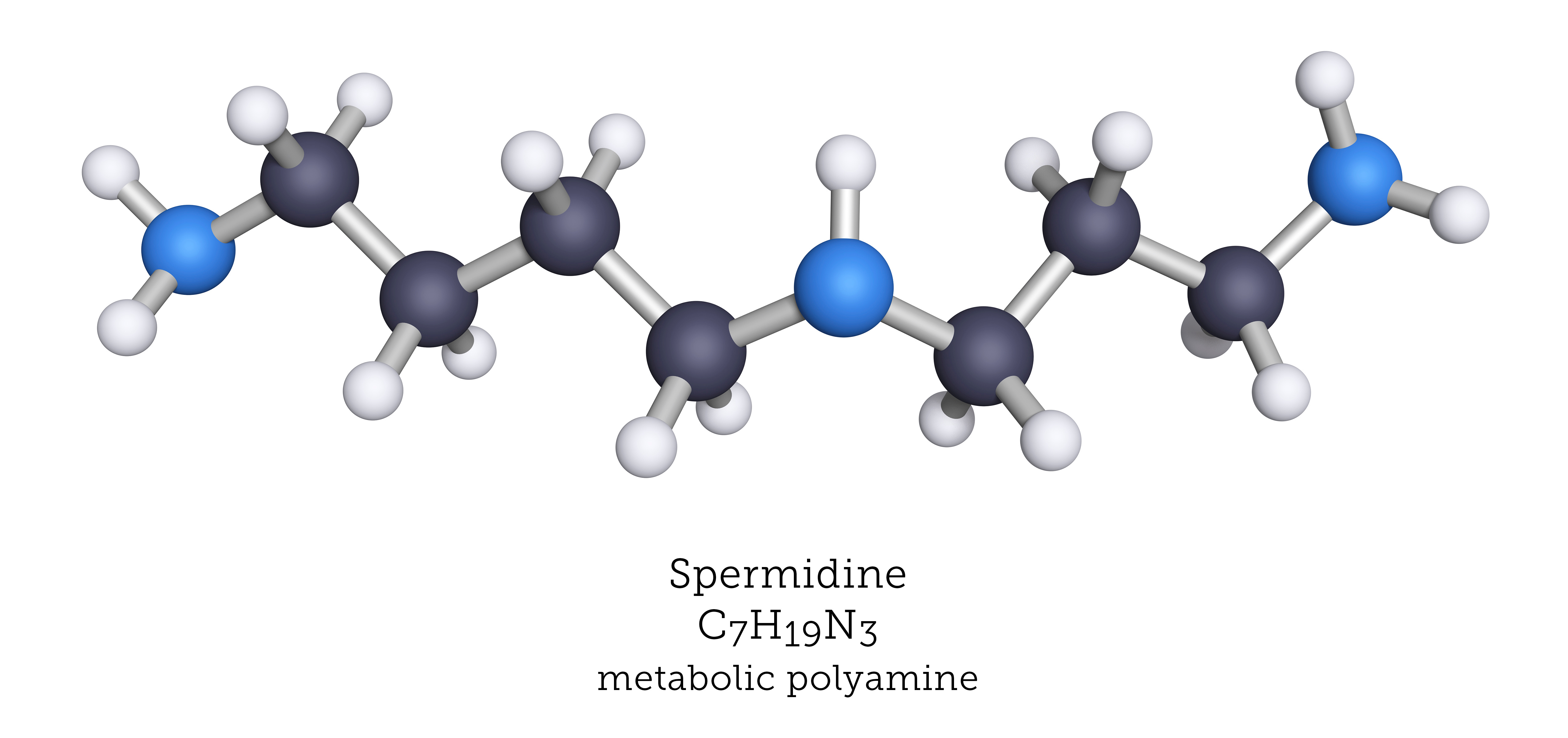Spermidine is a molecule that can be found in all our cells. It can be formed in the body from precursors, and we absorb it through food. It helps cells to eliminate cellular waste, i.e. parts of the cell that are no longer needed. This process is also called autophagy. It is assumed that spermidine uses autophagy to slow down the ageing process at cell level. Moreover, it is also known that higher dietary spermidine intake benefits various aspects of general health, body defence, and memory maintenance in older animals and humans. In contrast, research has shown that elevated spermidine tissue levels, e.g. in different brain areas, are an indicator for Alzheimer's disease.
"To better understand this well-known contrast, we wanted to investigate the relationship between spermidine blood levels and established MRI-based brain markers that show changes during brain ageing and in Alzheimer's disease in the general population," says Silke Wortha, PhD, first author of the study.
The researchers used four MRI-based brain markers and were able to show that elevated spermidine blood levels were associated with advanced brain ageing according to all four markers. Study participants were healthy and had no diagnosis of neurodegenerative disease like Alzheimer’s.
“Our study shows that physiological spermidine blood levels do not reflect the beneficial health effects observed with higher dietary spermidine intake in animal models and human studies. Additionally, results show that spermidine blood levels could be used as a potential biomarker for preclinical Alzheimer’s disease. This is important since blood-based biomarkers for Alzheimer’s disease are less expensive and less of a strain on patients’ bodies when compared to cerebrospinal fluid diagnostic, which entails the extraction of fluid from the spinal cavity” says Prof. Agnes Flöel, senior author of the study.
Other researchers were: Stefan Frenzel, Martin Bahls, Katharina Wittfeld, Sandra Van der Auwera, Robin Bülow, Stephanie Zylla, Nele Friedrich, Matthias Nauck, Henry Völzke and Hans J. Grabe at University Medicine Greifswald. Claudia Schwarzat the University of Helsinki and Mohamad Habes, at the University of Texas Health Science Center at San Antonio.
The research was supported by the Federal Ministry of Education and Research, Germany (grants nos. 01ZZ9603, 01ZZ0103, 01ZZ0403, and 01KU2004), the Ministry of Cultural Affairs and the Ministry of Social Affairs of the Federal State of Mecklenburg-Vorpommern, Germany. The Deutsche Forschungsgemeinschaft (Fl 379-10/1; Fl 379-11/1, and 327654276 - SFB 1315), a grant from Siemens Healthineers, Erlangen, Germany and the Federal State of Mecklenburg-Vorpommern, and a National Institutes of Health Grant RF1 AG059421.
Agnes Flöel is Chair of Neurology at University Medicine Greifswald, Professor of Neurology and head of the Cognitive Neurology Lab at University Medicine Greifswald.
Silke Wortha is a postdoctoral researcher at the Cognitive Neurology Lab at University Medicine Greifswald and a research fellow at Loughborough University.
More information can be found here:
Research Group Cognitive Neurology [de]
Contact person at the University of Greifswald:
Prof. Dr. Agnes Flöel
University Medicine Greifswald
Department of Neurology
Ferdinand-Sauerbruch-Straße
17475 Greifswald
Tel.: +49 3834 86 6815
Fax: +49 3834 86 6875
agnes.floeelmed.uni-greifswaldde

